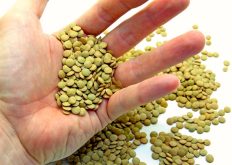Canada and the U.S. are set to challenge India’s market price supports for certain pulses including chickpeas and lentils.
U.S. Trade Representative Robert Lighthizer and U.S. Agriculture Secretary Sonny Perdue on Friday announced that “together with Canada” they’ve submitted a “counter notification” on the matter to the World Trade Organization (WTO) Committee on Agriculture (COA).
The counter notification, as filed Tuesday, concerns India’s market price supports for chickpeas, lentils, pigeon peas, black matpe and mung beans, the USTR said in a release.
Read Also

India slaps 30 per cent import duty on yellow peas
India has imposed a 30 per cent duty on yellow pea imports with a bill of lading date on or after Nov. 1, 2025.
Based on U.S./Canadian calculations, “it appears that India provides market price support for pulses vastly in excess of what it has reported to the WTO,” the two countries said in their filing to the COA.
At issue, the USTR said, are “the quantity of production used in market price support calculation (and) exclusion from India’s notification of information on the total value of production for each category of pulse.”
The U.S. and Canada also have issues with the currency conversions used and prices used in India’s calculations, the USTR said.
When calculated according to WTO Agreement on Agriculture methodology, “India’s market price support for each of these pulses far exceeded its WTO allowable levels of trade-distorting domestic support.”
Further comment from the office of Canada’s International Trade Diversification Minister Jim Carr wasn’t immediately available Friday.
The U.S. government “expects a robust discussion on how India implements and notifies its policies” at the next COA meeting, set for Feb. 26-27.
Canada and the U.S., in their filing, said they “look forward to future discussion of the significance of India’s (market price supports) for pulses, for both India’s market and for world markets.” — Glacier FarmMedia Network












